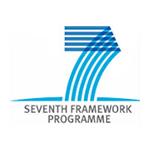Gendering the Academy and Research: Combating Career Instability and Asymmetries (GARCIA)
Principal Investigator at ZRC SAZU
Ana Hofman, PhD-
Original Title
Gendering the Academy and Research: Combating Career Instability and Asymetries
Project Team
Majda Černič Istenič, PhD, Ana Hofman, PhD, Ivanka Huber, PhD, Duška Knežević Hočevar, PhD, Oto Luthar, PhD, Tanja Petrović, PhD, Assist. Prof. Jovana Mihajlović Trbovc-
Duration
1 February 2014–31 January 2017 -
Lead Partner
Department of Sociology and Social Research at the University of Trento
-
Project Leader
Barbara Poggio, Department of Sociology and Social Research, University of Tre…
-
Financial Source
7. okvirni program

With a specific focus on the early stages of academic and scientific careers, the aim of GARCIA project is to implement plausible solutions in European Universities and research centres, in order to combat gender stereotypes and discriminations in these organisations (but also in the broader context) and to identify, develop and maintain research potential and skills of both, women and men, with a particular attention on female careers.
GARCIA is concerned with achieving gender equality in academia, by focusing on the early stages of the scientific career; promoting a gender culture and fighting gender stereotypes in order to sustain the quality of working conditions among all scientific staff and particularly women, currently more penalised in terms of career advancement; highlighting the role of the gender dimension in influencing excellence in research and teaching.
Through original methods and actions, GARCIA’s mail goal is to implement changes and innovative strategies in the working environment of researchers, especially at the time of their recruitment and at the first stages of their careers; put into practice the best systemic organisational approaches to remove obstacles that prevent women's full self-realisation in both professional and private lives, starting from their first access in academia, i.e. the doctorate programme; integrate a gender dimension both in the research content and in students' and PhD's curricula.
In order to reach the goal of gender equality in academic and research organisations it is important to encourage the modernisation of institutional practices and culture. With this aim the GARCIA project addresses the working environment of researchers from the beginning of their academic and scientific careers, more particularly looking at: PhD programmes, selection and recruitment processes, and first stages of their career after the PhD. By addressing these issues we do not only promote valorisation of women, but we also improve the quality of research and working conditions for all research staff. Moreover, in order to achieve this aim, it is important to integrate a gender perspective in graduates and undergraduates curricula, PhD programmes and research practices and methods, both in STEM (Science, Technology, Engineering, and Mathematics) and SSH (Social Sciences and Humanities) disciplines.